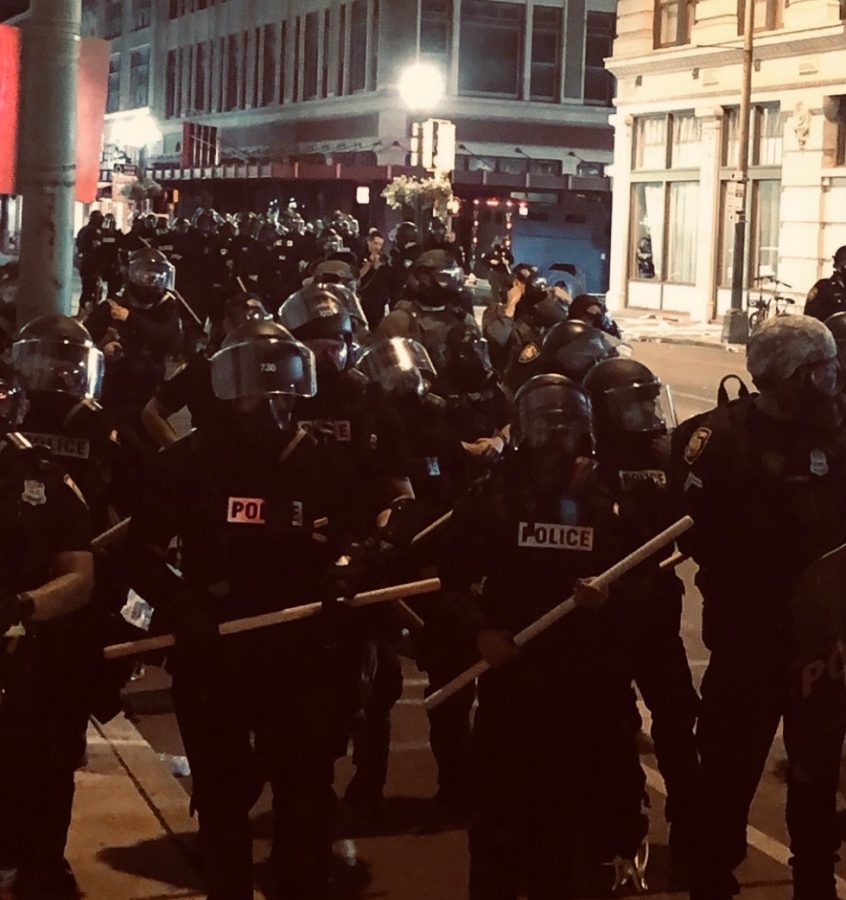Prop B: Police Accoutability of Defunding?
Photo by Jake Striebeck
April 30, 2021
In light of the Derek Chauvin case, the demand for police reform has increased dramatically across the nation, and San Antonio isn’t an exception.
Proposition B has been proposed on the May 1 City Election Ballot to repeal SAPD’s collective bargaining power. Collective bargaining is a process by which the only two parties allowed to negotiate police wages, hours, and working conditions, as well as contract negotiations, are the city and SAPD. By taking away the bargaining power from SAPD, citizens become a party within the negotiations of police contracts instead of having these contracts exclusive between the city and SAPD. Adding this third party would ideally keep the police accountable, with the additional party watching over their actions.
Being one of the most controversial things on the current city ballot, the proposition has numerous arguments both for and against it. The argument in support of the proposition, which is both endorsed by Julian Castro, former mayor of San Antonio, and Beto O’Rourke , previous congressional party member and former mayor of El Paso, is that it holds the police accountable for abusive actions by putting power into the hands of the people.
On the other hand, many such as the current Texas governor and Danny Dia, president of the San Antonio police union, argue that this proposition will defund the police. However, this argument has been debunked as the exact wording of proposition B does not create a requirement or mechanism for defunding or reducing the police budget.
I do think that this proposition is one of the first steps that San Antonio can take towards police accountability. San Antonio is one of the only cities that still uphold policies that allow for collective bargaining with the police as major cities in Texas such as Houston, Austin, and Dallas have moved on such policies, without issues such as “defunding” arising. Giving the people some power over the policing negotiations gives the police incentive to work accordingly for the people without overstepping boundaries they would normally get away with.
For example, within the last decade, 66% (27 out of 40) fired police officers in SAPD were rehired after misconduct. There was even one case of an officer fighting for reinstatement, having lost his job six times. This brings into question whether or not there is a culture of police corruption with SAPD and whether or not effective disciplinary action has been taken over police misconduct. With the new additional voice of the people included in these conversations, cases of police corruption should be deterred.
For now, I believe that Proposition B is one of the first steps that San Antonio should take to address the corruption within the police force.







